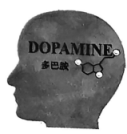
Time flies when you play on your smartphone. But when you get down to the real business of work and study, one hour feels like a year. Why are we so addicted to (上瘾)smartphones but easily bored by studying?
It's all because of something small and hard to see: dopamine. Our brains release it when we eat yummy food, after we exercise or when we are rewarded(奖赏).
For example, checking your phone for a text leads to a 400 percent increase in dopamine, said US author Steven Kotler. But why?
When we scroll (滑动)on social media, we don't know what we'll see next, or who will comment on our posts. This uncertainty, or "the magic of maybe", makes the dopamine system active, according to the popular science website Guokr.
When our expectations are met, dopamine is released. And to get more dopamine, we continue checking our phones. Studying doesn't provide such uncertainty.
Can we do something to change that? According to Harvard Medical School's Trevor Haynes, apps can become less addictive if we turn off notifications (通知)or change the screen colors to black and white.
As for studying, you could check your progress daily or weekly and reward yourself for it, said Daniel Wong, author of The Happy Student. You could also explore interesting topics related to your textbook, This will make knowledge much more interesting to learn.
|
A. Our brains release more dopamine when we study. B. We can also set time limits on apps to avoid overusing them. C. Use what you've learned to make a difference in the real world. D. Dopamine is a ''pleasure chemical" that makes people feel good. E. We get excited wondering if we have comments from our friends. F. Compared with studying, playing on smartphones causes our brains to release more dopamine. |